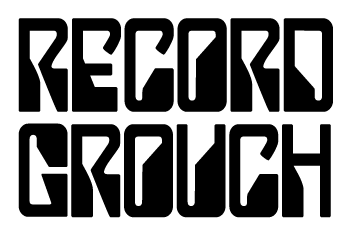 Image 1 of
Image 1 of

FRANCISCO MORA CATLETT: Mora! I (FAR OUT RECORDINGS)
This is the first of a pair of albums, recorded back-to-back in the late 1980s, to present the percussionist/composer Francisco Mora Catlett's expansive vision of Latin jazz.
Mora, born in Washington D.C. to a Mexican father and an African-American mother, both of whom were artists, draws from a panoply of cultural sources. Call it Pan-African expression via Blaxican consciousness.
Mora's musical path includes working as a session musician in Mexico City, where he grew up; studying with Babatunde Olatunji and Max Roach; being a long-time member of Sun Ra's Arkestra; and in the late 80s, recording Mora! and its follow-up, in Detroit, where he was living at the time. Key figures from that city's jazz scene, such as trumpeter Marcus Belgrave, pianist Kenny Cox, and bassist Rodney Whitaker, appear on the recordings. (Later, Mora collaborated with seminal techno artist Carl Craig and continues to work with various groups.)
Afro-Caribbean drumming, post-bop composition, and Brazilian rhythms all come into play. The music can be hard-hitting or light as a feather, veer into free playing or dig deep into rooted grooves. Violin and steel drums make appearances along with wordless vocals and big band bursts.
Like so much music created by Mexican-Americans, it fully manifests mestizaje.
This is the first of a pair of albums, recorded back-to-back in the late 1980s, to present the percussionist/composer Francisco Mora Catlett's expansive vision of Latin jazz.
Mora, born in Washington D.C. to a Mexican father and an African-American mother, both of whom were artists, draws from a panoply of cultural sources. Call it Pan-African expression via Blaxican consciousness.
Mora's musical path includes working as a session musician in Mexico City, where he grew up; studying with Babatunde Olatunji and Max Roach; being a long-time member of Sun Ra's Arkestra; and in the late 80s, recording Mora! and its follow-up, in Detroit, where he was living at the time. Key figures from that city's jazz scene, such as trumpeter Marcus Belgrave, pianist Kenny Cox, and bassist Rodney Whitaker, appear on the recordings. (Later, Mora collaborated with seminal techno artist Carl Craig and continues to work with various groups.)
Afro-Caribbean drumming, post-bop composition, and Brazilian rhythms all come into play. The music can be hard-hitting or light as a feather, veer into free playing or dig deep into rooted grooves. Violin and steel drums make appearances along with wordless vocals and big band bursts.
Like so much music created by Mexican-Americans, it fully manifests mestizaje.
This is the first of a pair of albums, recorded back-to-back in the late 1980s, to present the percussionist/composer Francisco Mora Catlett's expansive vision of Latin jazz.
Mora, born in Washington D.C. to a Mexican father and an African-American mother, both of whom were artists, draws from a panoply of cultural sources. Call it Pan-African expression via Blaxican consciousness.
Mora's musical path includes working as a session musician in Mexico City, where he grew up; studying with Babatunde Olatunji and Max Roach; being a long-time member of Sun Ra's Arkestra; and in the late 80s, recording Mora! and its follow-up, in Detroit, where he was living at the time. Key figures from that city's jazz scene, such as trumpeter Marcus Belgrave, pianist Kenny Cox, and bassist Rodney Whitaker, appear on the recordings. (Later, Mora collaborated with seminal techno artist Carl Craig and continues to work with various groups.)
Afro-Caribbean drumming, post-bop composition, and Brazilian rhythms all come into play. The music can be hard-hitting or light as a feather, veer into free playing or dig deep into rooted grooves. Violin and steel drums make appearances along with wordless vocals and big band bursts.
Like so much music created by Mexican-Americans, it fully manifests mestizaje.
